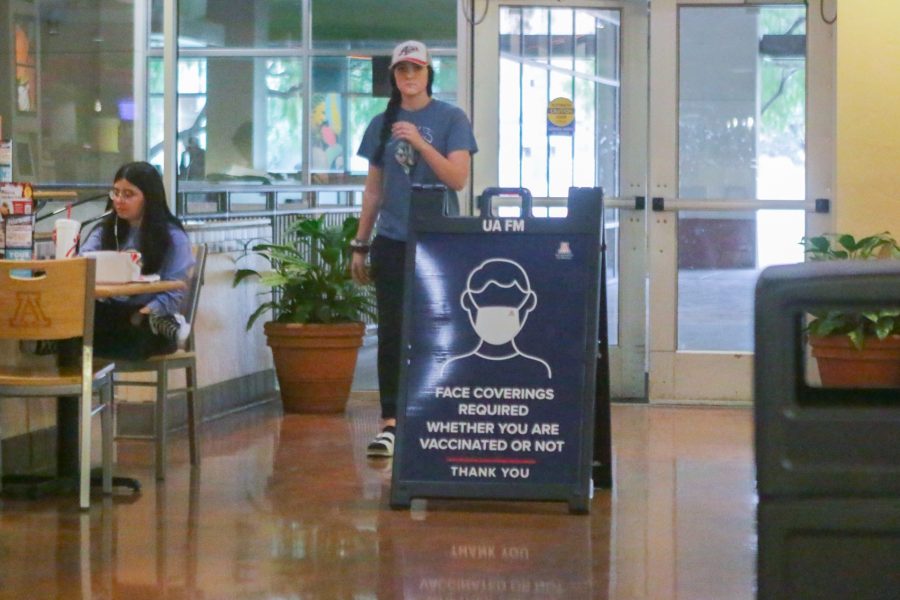The first cases of the Omicron variant at the University of Arizona were detected by researchers on Dec. 21.
Using genomic testing on samples from the UA’s COVID-19 testing program, researchers identified seven cases of the variant. According to Michael Worobey, head of the Department of Ecology and Evolutionary Biology at the UA, this discovery was made by scientists from a lab in the same department at approximately 3:30 a.m.
According to a university press release, the UA will conduct the standard process of contact tracing to notify any students who may have been exposed to the variant.
According to NPR, the Omicron variant is now the most dominant strain of the COVID-19 virus in the U.S., accounting for 73% of new COVID-19 infections in the last week. The Centers for Disease Control and Prevention reported that vaccines are still effective against Omicron in decreasing the risk of severe illness, hospitalization and death among those who contract the virus.
The high transmission rates of this strain are a point of concern among scientists and public officials.
“It’s extremely contagious. It’s one of the most contagious viruses that we know about; it’s right up there with measles. And so yeah this is going to spread, but the point is, we have something to do with how quickly it does spread,” Worobey said in an interview with KVOA. “It is important to try to combat the spread so that we don’t all of a sudden tax our healthcare system with so many patients at one time that it can’t handle it, and this kind of sequencing allows us to detect things early while there’s still some time to react.”
In his interview with KVOA, Worobey encouraged students and faculty to wear masks, practice social distancing and avoid indoor gatherings when possible in order to prevent the virus from spreading further. He also spoke about the importance of getting vaccinated.
“Of course, if you haven’t had a vaccine, get your vaccine. If you have two doses, go get your booster,” Worobey said. “Vaccines and boosters are so important, because those may give us the best protection if we’re eventually infected with this virus against these kinds of long-term symptoms.”
Currently, about 85% of students and faculty have submitted proof of vaccination against COVID-19. Resuming Jan. 11, Campus Health will continue to offer free vaccines and boosters to eligible students and faculty members.
Follow Sam Parker on Twitter









